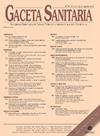Conciliación de la medicación al alta en una unidad de psicogeriatría
IF 1.5
4区 医学
Q3 HEALTH CARE SCIENCES & SERVICES
引用次数: 0
Abstract
Objective
To analyze the impact of medication reconciliation at hospital discharge carried out by an interdisciplinary team on patients admitted to the psychogeriatric unit of a medium-stay hospital.
Method
A quasi-experimental study comparing a historical control group (CG) (February-May 2023) with an intervention group (IG) from February to May 2024. Discrepancies were identified by a hospital pharmacist, and the resolution of the proposed interventions was recorded after being discussed with the geriatrician. Sociodemographic, clinical, pharmacological, and economic variables were collected.
Results
58 patients were studied in the CG and 54 in the IG. 83 interventions were performed, 56 (67.5%) accepted. As a result, the median number of reconciliation errors per patient (IG Me: 0 [RIC: 0-1] vs. CG Me: 1 [RIC: 0-2]; p = 0.024) and the percentage of patients with medication reconciliation errors at discharge decreased (CG 55.2% vs. IG 37%). Post-discharge, there was a significant mean difference in the Drug Burden Index (DBI) for the IG (2.00 ± 0.69) compared to the CG (2.28 ± 0.59) (p = 0.023). In the IG, the number of chronic prescriptions decreased by 0.41 prescriptions (p = 0.006), and the DBI was reduced by an average of 0.08 points (p = 0.032). The intervention led to a 6.94% savings in treatment costs, amounting to an average of €8.34 per patient and month (95%CI: 3.09-13.59; p = 0.002).
Conclusions
Medication reconciliation at discharge reduces medication reconciliation errors, the number of patients with medication reconciliation errors, chronic prescriptions and the DBI, resulting in an improvement in healthcare quality and cost savings.
老年精神科住院治疗协调
目的分析某中等住院期医院老年精神科跨学科团队在出院时开展药物和解对住院患者的影响。方法采用准实验研究方法,将历史对照组(CG)(2023年2月- 5月)与干预组(IG)(2024年2月- 5月)进行比较。一名医院药剂师发现了差异,并在与老年病专家讨论后记录了拟议干预措施的解决方案。收集了社会人口学、临床、药理学和经济变量。结果CG组58例,IG组54例。83例干预,56例(67.5%)接受。结果,每位患者调解错误的中位数(IG Me: 0 [RIC: 0-1] vs. CG Me: 1 [RIC: 0-2];p = 0.024),出院时出现药物调和错误的患者比例下降(对照组55.2%,对照组37%)。出院后IG组药物负担指数(DBI)(2.00±0.69)与CG组(2.28±0.59)差异有统计学意义(p = 0.023)。IG组慢性处方数减少0.41张(p = 0.006), DBI平均降低0.08点(p = 0.032)。干预导致治疗费用节省6.94%,相当于平均每位患者和每月8.34欧元(95%CI: 3.09-13.59;p = 0.002)。结论出院时的药物和解降低了药物和解错误,减少了药物和解错误的患者数量,减少了慢性处方和DBI,提高了医疗质量,节约了成本。
本文章由计算机程序翻译,如有差异,请以英文原文为准。
求助全文
约1分钟内获得全文
求助全文
来源期刊

Gaceta Sanitaria
医学-公共卫生、环境卫生与职业卫生
CiteScore
4.10
自引率
5.30%
发文量
80
审稿时长
29 days
期刊介绍:
Gaceta Sanitaria (Health Gazette) is an international journal that accepts articles in Spanish and in English. It is the official scientific journal of the Sociedad Española de Salud Publica y Administración Sanitaria (Spanish Society of Public Health and Health Administration) (SESPAS).
The Journal publishes 6 issues per year on different areas of Public Health and Health Administration, including:
-Applied epidemiology-
Health prevention and promotion-
Environmental health-
International health-
Management and assessment of policies and services-
Health technology assessments-
Health economics.
The editorial process is regulated by a peer review system. It publishes original works, reviews, opinion articles, field and methodology notes, protocols, letters to the editor, editorials, and debates.
 求助内容:
求助内容: 应助结果提醒方式:
应助结果提醒方式:


